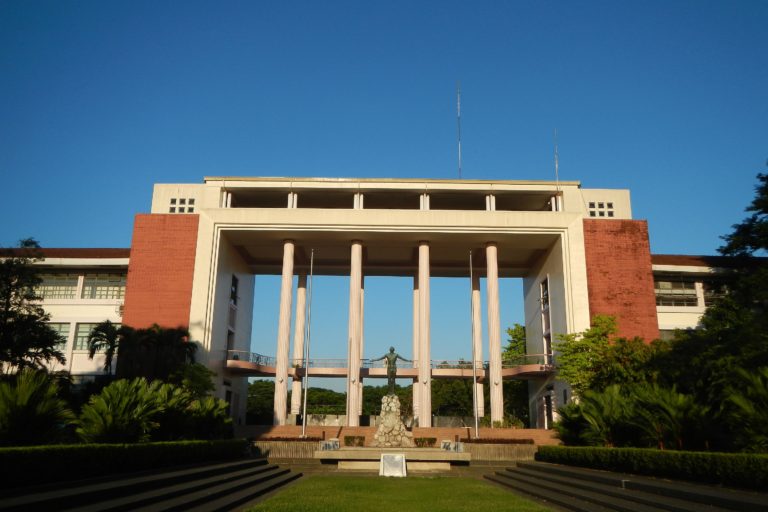DGR stands in solidarity with indigenous peoples worldwide. They are often decisive defenders of the landbase that is their home and also the most vulnerable people, facing endless attacks, harassment and genocide by the culture of empire.
This is an excerpt from an article originally published on Mongabay.
- The Philippines’ Department of National Defense has unilaterally terminated an accord that ensured the 17 campuses of the University of the Philippines were off-limits to the military and police.
- The defense secretary justified the move by alleging that insurgents from the banned communist party and its armed wing are using the campuses’ sanctuary status as cover for their recruitment and propaganda purposes.
- The decision has alarmed displaced Indigenous students who are harboring at UP’s Quezon City campus after the military bombed or took over their schools in a counter-insurgency campaign that began in 2018.
- Critics say the move is the latest blow to human rights and environmental activists in the Philippines, following the recent enactment of an anti-terrorism law seen as giving the armed forces free rein to perpetuate abuses in a country already rated as the most dangerous in Asia for environmental and land defenders.
MANILA — Indigenous youths harboring from a military-led counterinsurgency in the Philippines may soon lose the only safe space they have known for the past two years.
Under a nearly 40-year pact, the 17 campuses of the University of the Philippines are off-limits to the country’s military and police. Since 2019, a group of 68 Indigenous students and teachers have taken refuge at the UP campus in Quezon City, where they attend a makeshift school following the forcible closure of more than 160 schools catering to Indigenous communities, or lumad, in the southern island of Mindanao.
But in a letter dated Jan. 15 this year to the UP president, National Defense Secretary Delfin Lorenzana unilaterally declared an end to the pact, effectively stripping the sanctuary status of the campuses of the country’s leading public university.
Lorenzana cited “recent events” that identified UP students as members of the outlawed Communist Party of the Philippines and its armed wing, the New People’s Army (CPP/NPA), and said that “national security issues” and the safety of students against rebel recruiters are the main driving forces for the termination of what’s known as the UP-DND accord or the Enrile-Soto accord.
“The Department is aware that there is indeed an ongoing clandestine recruitment inside UP campuses nationwide for membership in the CPP/NPA and that the ‘Agreement’ is being used by the CPP/NPA recruiters and supporters as shield or propaganda so that government law enforcers are barred from conducting operations against the CPP/NPA,” the letter, addressed to UP President Danilo Concepcion, says.
The Department of National Defense (DND) says it will not “station military or police” on campuses and will not “suppress activist groups, academic freedom and freedom of expression.” The DND has nothing to gain from suppressing these activities, Lorenzana wrote: “We want them [the youth] to see their Armed Forces and Police as protectors worthy of trust, not fear.”
But despite the secretary’s reassurances, the news has triggered alarms for Indigenous students, who could now be targeted in military raids. The development threatens a repeat of the military attacks on Indigenous schools that occurred after President Rodrigo Duterte declared martial law in Mindanao in 2017, says Ruis Valle of the Save Our Schools Network (SOSN).
In 2018, the military conducted a series of campaigns and operations to crack down on lumad schools in Talaingod, in Mindanao’s Davao del Norte province, after Duterte threatened in 2017 to bomb the schools.
He had accused the CPP/NPA of using the schools as training grounds.
Since then, more than 160 schools catering to Mindanao’s Indigenous inhabitants have been bombed or transformed into military detachments, and completely shut.
The group of Indigenous students and teachers who sought sanctuary at UP’s Quezon City campus have consistently called for the reopening of Indigenous schools forced to close by the government, the SOSN says. It adds the now-scrapped UP-DND accord “served as a protective barrier for lumad children from direct military and police harassment.”
Human rights and environmental groups have also expressed concern at the DND’s latest move, calling the accord’s termination an attack on UP “as a democratic space.”
Since 2012, the university has “opened its doors to the lakbayan and kampuhan of indigenous people, national minorities, and farmers protesting mining plunder, land grabs, and other attacks against their ancestral lands,” the Kalikasan People’s Network for the Environment, an NGO, said in a statement to Mongabay.
The university has also been “one of the few safe spaces” for environmental and human rights defenders to mobilize amid the government’s militaristic approach to the COVID-19 pandemic. Duterte signed a controversial anti-terrorism law during the lockdown, which critics say worsens an already fragile climate for environmental defenders and Indigenous groups in the Philippines. Eco-watchdog Global Witness rates the country the most dangerous for environmental and land defenders in Asia.
“The University of the Philippines is one of the pillars of academic freedom and critical thinking in the country,” Kalikasan said. “It is because of this freedom and critical thinking that the University can produce great minds that have excelled in different fields, including environmental protection and defense.”
Featured Image: The University of the Philippines campus in Diliman, Quezon City, Metro Manila.
Image by Ramon FVelasquez via Wikimedia Commons Public Domain

